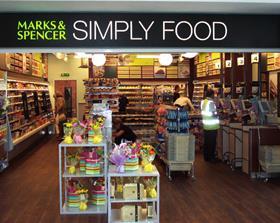
M&S profits before tax and adjusting items fell by 17 per cent for the first half of 2019 after weak clothes sales and its Ocado partnership hit the retailer’s accounts.
The company said the results reflected the first stage of its transformation plan; a plan it says will create a profitable, growing family of businesses under the M&S brand, as well as achieve cost savings of £350 million by 2020/2021.
Food is key part of that plan, an area where the company reported more positive news, with total revenue up 1.2 per cent, and like for like revenue up 0.9 per cent for the 26 week period ending 28 September.
“Performance improved in quarter two, with like-for-like sales up 1.4 per cent and total volumes up 3.3 percent as investment continued in trusted value, with over 400 price reductions in excess of 10 per cent over the past year,” the accounts states.
“Gross margin decreased 20bps to 31%. Investment in price and cost inflation was largely offset by lower promotions and cost reductions.”
Group revenue declined by 2.1 per cent to £4.86 billion.
In August M&S acquired 50 per cent of Ocado, appointing its strategy director, Melanie Smith, as the new Ocado CEO. M&S said its share of Ocado’s losses for the period from acquisition amounted to £500,000.
The report outlined some of the struggles that M&S are still battling as it seeks to overhaul its business, currently trialling a new supply chain model.
“In food we still trade with high levels of waste and low levels of availability. During the period a new operating model was tested successfully at Vangarde, York store and is now being rolled out to a further 85 trial locations.
“Changes have been made to all parts of the supply chain process including forecasting and allocation, the flow of goods, depot and transport optimisation and store processes.
“Initial results have demonstrated a significant improvement in availability and waste levels and results will be assessed of the larger group following peak trading, before a wider roll out in 2020.”
In May last year, the business revealed it aims to close 100-plus stores by 2022.
Steve Rowe, chief executive, said despite the profit drop, there are grounds for optimism. “Our transformation plan is now running at a pace and scale not seen before at Marks & Spencer. For the first time we are beginning to see the potential from the far reaching changes we are making.
“The Food business is outperforming the market. Our deal to create a joint venture with Ocado is complete and plans to transition to the M&S range are on track.”



